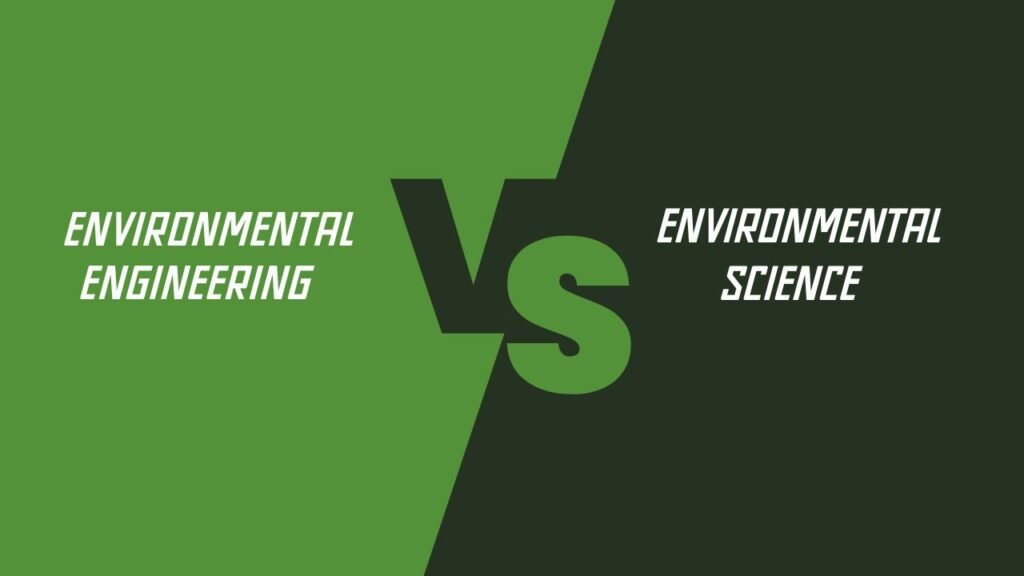3 Reasons to Become Environmental Engineers
Introduction
In today’s world, the need for environmental sustainability has become more pressing than ever before. As our planet faces numerous environmental challenges, there is a growing demand for professionals who can tackle these issues head-on. This is where environmental engineers come into play. Environmental engineering is a field that combines scientific knowledge, engineering principles, and problem-solving skills to develop sustainable solutions for environmental problems. In this article, we will explore three compelling reasons why you should consider a career in environmental engineering.

Reason 1: Making a Positive Impact on the Environment
One of the most rewarding aspects of being an
environmental engineer is the opportunity to make a positive impact on the environment. Environmental engineers work on projects that aim to protect and restore the natural environment. They design and implement solutions to mitigate pollution, conserve resources, and promote sustainable practices. Whether it’s developing innovative wastewater treatment systems, designing renewable energy projects, or implementing strategies to reduce air pollution, environmental engineers play a crucial role in creating a cleaner and healthier planet for future generations.
Reason 2: Diverse and Challenging Career Opportunities
Environmental engineering offers a wide range of career opportunities that are both diverse and challenging. As an environmental engineer, you can work in various sectors such as government agencies, consulting firms, research institutions, and non-profit organizations. You may find yourself working on projects related to water resources management, air quality control, waste management, environmental impact assessment, or sustainable infrastructure development. The field of environmental engineering is constantly evolving, presenting new and exciting challenges that require innovative solutions. This dynamic nature of the profession ensures that you will never have a dull moment in your career.
Reason 3: Contributing to Global Sustainability Goals
In recent years, there has been a global push towards achieving sustainability goals outlined in initiatives such as the United Nations Sustainable Development Goals (SDGs). These goals address critical issues such as climate change, clean water and sanitation, affordable and clean energy, sustainable cities and communities, and responsible consumption and production. Environmental engineers play a vital role in helping societies achieve these goals by developing and implementing sustainable solutions. By working in the field of environmental engineering, you can actively contribute to global sustainability efforts and be part of the solution to some of the world’s most pressing environmental challenges.
Frequently Asked Questions (FAQ)
Q1: What qualifications do I need to become an environmental engineer?
To become an environmental engineer, you typically need a bachelor’s degree in environmental engineering or a related field such as civil engineering or chemical engineering. Some positions may require a master’s degree or higher, especially for research or specialized roles. It is also beneficial to gain practical experience through internships or co-op programs during your studies.
Q2: What skills are important for environmental engineers?
Environmental engineers need a combination of technical and soft skills. Technical skills include knowledge of environmental regulations, proficiency in environmental modeling and analysis software, and expertise in areas such as water and wastewater treatment, air pollution control, and solid waste management. Soft skills such as problem-solving, critical thinking, communication, and teamwork are also crucial for success in this field.
Q3: Is environmental engineering a growing field?
Yes, environmental engineering is a growing field with increasing job opportunities. As the world becomes more environmentally conscious, there is a growing demand for professionals who can address environmental challenges and develop sustainable solutions. The Bureau of Labor Statistics projects a 5% growth in employment for environmental engineers from 2019 to 2029, which is faster than the average for all occupations.
Q4: How much can I expect to earn as an environmental engineer?
The salary of an environmental engineer can vary depending on factors such as experience, education, location, and the industry in which you work. According to the
Bureau of Labor Statistics, the median annual wage for environmental engineers was $88,860 in May 2020. However, salaries can range from around $55,000 to over $140,000 per year, depending on these factors.
Q5: What are some notable projects that environmental engineers have worked on?
Environmental engineers have been involved in numerous notable projects around the world. Some examples include the development of sustainable wastewater treatment systems, the design of renewable energy infrastructure, the implementation of air pollution control measures in urban areas, and the restoration of contaminated sites. These projects have had a significant impact on improving environmental quality and promoting sustainability.
Conclusion
Becoming an environmental engineer offers a unique opportunity to make a positive impact on the environment, work on diverse and challenging projects, and contribute to global sustainability goals. With the increasing focus on environmental issues, the demand for environmental engineers is expected to grow in the coming years. If you have a passion for the environment and a desire to create a more sustainable future, a career in environmental engineering may be the perfect choice for you.
Remember, the world needs dedicated professionals who can tackle environmental challenges and develop innovative solutions



